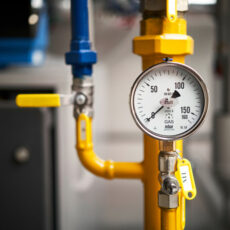 When it comes to powering heavy machinery and performing tasks that require a tremendous amount of force, hydraulic engine systems are the unsung heroes. These systems utilize the power of fluids to generate and transmit force, making them an essential component in various industries. In this blog post, we will provide a comprehensive guide to hydraulic engine systems, explaining the fundamental principles and highlighting their applications in industries such as construction, manufacturing, and transportation.
When it comes to powering heavy machinery and performing tasks that require a tremendous amount of force, hydraulic engine systems are the unsung heroes. These systems utilize the power of fluids to generate and transmit force, making them an essential component in various industries. In this blog post, we will provide a comprehensive guide to hydraulic engine systems, explaining the fundamental principles and highlighting their applications in industries such as construction, manufacturing, and transportation.
The Basic Principles of Hydraulic Systems
At the heart of a hydraulic engine system lies the principle of Pascal’s law, which states that when pressure is applied to a fluid in an enclosed system, the pressure is transmitted equally in all directions. This principle allows hydraulic systems to generate immense force, making them highly efficient in transferring power. Hydraulic systems consist of several key components:
1. Hydraulic Fluid: Typically, an incompressible fluid such as oil or water is used in a hydraulic system. The fluid’s ability to transmit force is critical to the system’s operation.
2. Hydraulic Pump: The pump is responsible for creating the flow of hydraulic fluid within the system. It pressurizes the fluid, supplying it to other components.
3. Control Valves: Control valves regulate the direction, flow rate, and pressure of the hydraulic fluid within the system. They enable precise control over the machinery or equipment being powered.
4. Hydraulic Cylinder or Motor: These devices convert the pressure energy of the hydraulic fluid into mechanical force or rotary motion. Hydraulic cylinders generate linear force, while hydraulic motors produce rotational force.
Applications in Construction
Hydraulic systems play a vital role in the construction industry, powering heavy machinery and providing the force necessary for various operations. Excavators, cranes, bulldozers, and loaders all rely on hydraulic systems to lift and move heavy loads, dig trenches, and perform other critical tasks. The ability of hydraulic systems to generate immense force with precise control makes them ideal for these demanding applications.
Applications in Manufacturing
In the manufacturing industry, hydraulic systems are widely used in a range of machinery and equipment. Hydraulic presses are commonly used for molding, shaping, and forming various materials, such as metal sheets or plastics. The force exerted by hydraulic systems allows for precise and consistent results in manufacturing processes. Additionally, hydraulic systems are used in injection molding machines, machine tools, and automation equipment, further enhancing productivity and efficiency in manufacturing operations.
Applications in Transportation
Hydraulic engine systems also find application in the transportation industry. Hydraulic brake systems are used in automobiles, motorcycles, and heavy-duty vehicles. The force exerted by hydraulic fluid allows for effective braking, ensuring safety on the roads. Hydraulic suspension systems provide a smooth and comfortable ride by adjusting the suspension’s stiffness and damping characteristics. Additionally, hydraulic systems power steering and hydraulic lifts in vehicles, facilitating ease of control and efficient lifting operations in the transportation sector.
Maintenance and Care
To ensure the longevity and optimal performance of hydraulic engine systems, proper maintenance and care are essential. Regular checks of hydraulic fluid levels, quality, and cleanliness are necessary to prevent system failures. Periodic inspections of hoses, seals, and fittings should be performed to identify any potential leaks or wear. Additionally, routine servicing and replacement of filters, as well as flushing and replenishing hydraulic fluid, are necessary to maintain the system’s efficiency and reliability.
The Future of Hydraulic Systems
While hydraulic engine systems have long been a workhorse in many industries, advancements in technology are driving innovation in the field. The introduction of electro-hydraulic hybrids combines the power and efficiency of hydraulic systems with the precision and control of electrical systems. These advancements offer the potential for increased efficiency, reduced environmental impact, and improved performance in various applications.
Summary
Hydraulic engine systems play a crucial role in powering heavy machinery and enabling the force necessary for various industries. Understanding the fundamental principles of hydraulic systems, including Pascal’s law, is key to appreciating their capabilities. Whether in construction, manufacturing, or transportation, hydraulic systems provide the strength, precision, and control required for demanding tasks. With proper maintenance and care, hydraulic engine systems can operate efficiently and reliably, ensuring their crucial role as the hydraulic heroes in the industries they serve.
Got Questions About Industrial Machinery? Let Us Help!
Hydraulic Power Sales, Inc. is local manufacture, distributor, and service provider of hydraulics equipment based in Cordova, California. Since 1985, we have been providing hydraulic repair services, hose assemblies, and sales to businesses throughout northern California. We manufacture hydraulic engine systems and hydraulic cylinders while supplying other hydraulic equipment. We want to be your one source for all of your hydraulic/pneumatic needs. Give us a call today!

